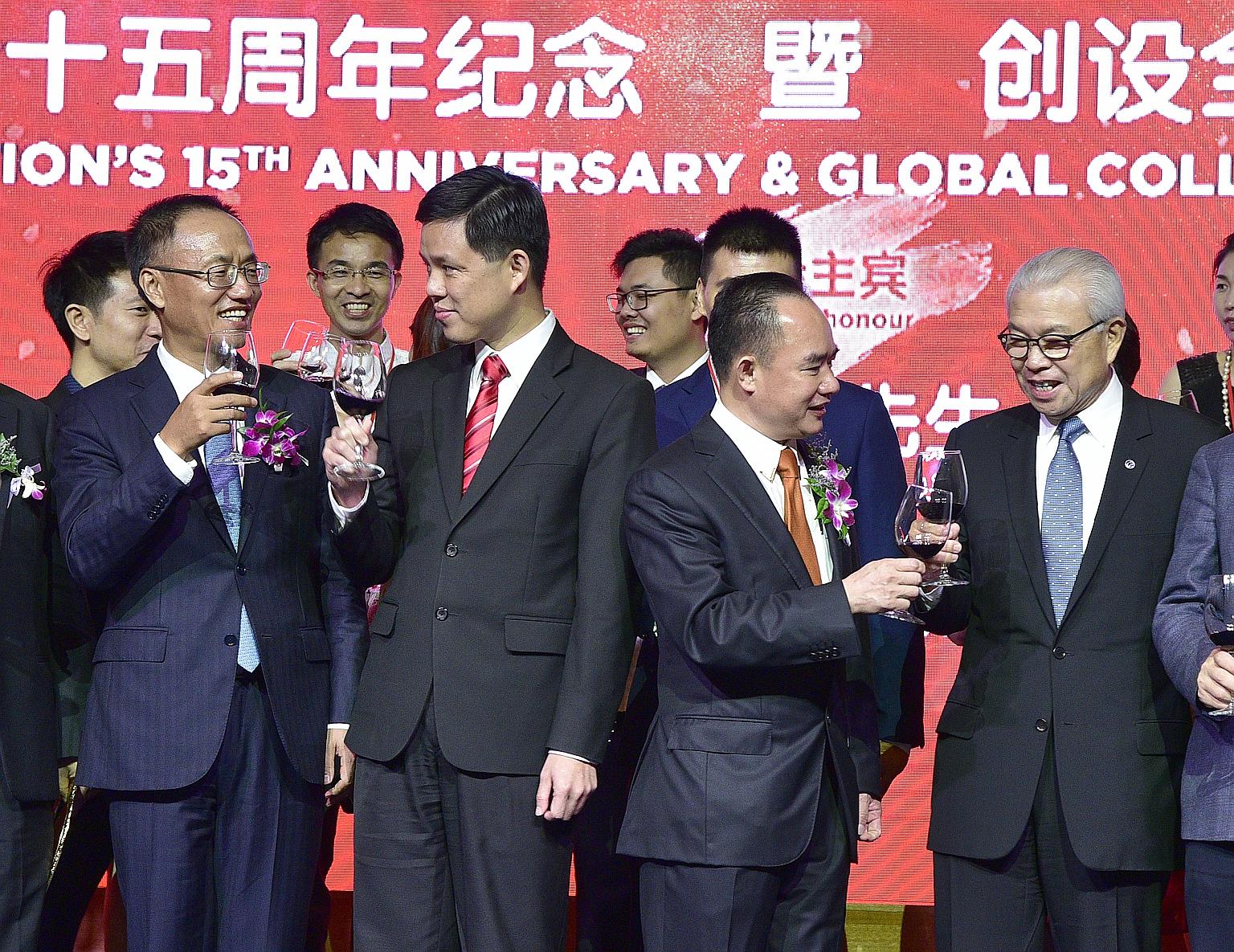Chinese networks can play wider role: Chun Sing
Sign up now: Get ST's newsletters delivered to your inbox

(From left) China's Ambassador to Singapore Chen Xiaodong, Mr Chan Chun Sing, Singapore Hua Yuan Association president Wang Quancheng and Singapore Federation of Chinese Clan Associations president Chua Thian Poh raising a toast at the Singapore Hua Yuan Association's 15th anniversary dinner last night.
ST PHOTO: DESMOND WEE
A social network that aims to foster closer global ties for Singapore has been set up by a club of new Singapore citizens, which has linked up with overseas Chinese associations from some 80 countries, including many Chinese cities.
The Global Hua Yuan Collaborative Network was launched last night, and Mr Wang Quancheng, president of the Singapore Hua Yuan Association, signed pacts with representatives of groups from places such as Russia, North and South America, Europe, Australia and across Asia.
The association also marked its 15th anniversary with a dinner for 1,200 members and guests at Resorts World Sentosa, attended by Minister in the Prime Minister's Office and labour chief Chan Chun Sing.
Mr Chan said in a speech that such networks by Chinese community groups can play a new role in connecting Singapore with the rest of the world.
He noted how, in the past, Chinese clan associations were like a bridge between Singapore and China, where the early Chinese immigrants had come from.
"Now they are like a construction crane, with a solid foundation capable of rising and helping Singapore to reach out and connect with different parts of the world, not China alone," he added.
The initiative aims to boost cooperation and exchanges between Singapore and the world, especially Chinese cities, in business, education, culture and the arts, said Mr Wang. His 6,000-member Hua Yuan Association comprises mostly new Singapore citizens and permanent residents from China.
He added: "It will encourage the sharing of resources across boundaries and boost interpersonal exchanges as well as build an effective platform for communication and the sharing of information."
Moscow-based Overseas Chinese Entrepreneurs Association's chairman Wu Jinming, who was present last night, said the new network would allow Chinese in different countries to help one another.
"I am doing business in Moscow and can help any Chinese businessman interested in doing business in Russia," he said, adding that when his daughter came to Singapore to study, she benefited from the help of others too.
In his speech, Mr Chan traced the evolution of Chinese immigrants in Singapore through the years from the colonial days to Singapore's independence in 1965, when they became the majority in the country but also a minority in the region.
He praised them for holding on to good values such as diligence, thriftiness and benevolence, and reminded them of the need to integrate into wider Singapore society.
"The new Chinese immigrants must not only integrate with the older immigrants with their younger generations all Singapore-born, but also those from the minority races," he said. Mr Chan added that as the majority race, the Chinese "must also think of the interest of the minority and the needy in society".
He also urged the new Chinese immigrants not to remain "new" for too long. They should become Singaporeans who are multiracial and multi-religious, but who share a common goal and destiny, he said.


